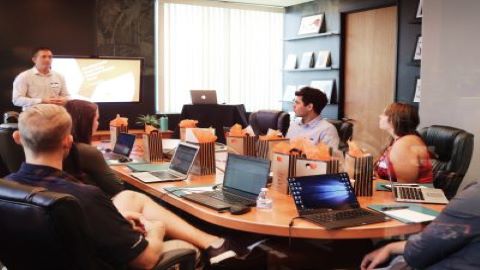Presentations in this series are based on the projects that GLO-VirtYS program scholars completed as part of the their program participation. See for the details VirtYs program and the cohort 2021.
Register for the next talk NOW. Participation is free and open to the public.
https://kent-ac-uk.zoom.us/meeting/register/tJ0of-Corz8tHNWYjrXwoG4_1SOCb6VTGuGv
After registering, you will receive a confirmation email containing information about joining the meeting.
September 30th 2021 Program on 1 pm London/UK time.
Sydney (10pm), Beijing (8pm), Istanbul (3pm), Berlin (2pm), London (1pm), Cape Town (2pm), Washington DC (8am), Santiago de Chile (9am)
Jie Chen, Jiangsu University and GLO Affiliate
Does vocational education pay better, or worse, than academic education?
(GLO VirtYS program advisor Professor Francesco Pastore)
Muchin Bazan Ruiz, Virginia Tech and GLO Affiliate
Women in Engineering: The Role of Role Models
(GLO VirtYS program advisor Professor Kompal Sinha
Chaired by GLO VirtYS Program Director Olena Nizalova.
FOR PAST AND FUTURE EVENTS SEE THE GLO WEBSITE.
Featured Image: Employee-Training-unsplash

Jie Chen is a lecturer of economics at Jiangsu University. Her research interests are in experimental economics and educational economics. She received her PhD in economics from the University of New South Wales.
GLO VirtYS project: Does vocational education pay better, or worse, than academic education?
In this paper, we use the Chinese General Social Survey data to analyze the returns to upper secondary vocational education in China. To address possible endogeneity of vocational training due to omitted heterogeneity, we construct a novel instrumental variable using the proportion of tertiary education graduates relative to the entire population by year. Our main finding is that, although returns to vocational upper secondary education appear higher than returns to academic upper secondary education according to the Mincerian equation, the results from the instrumental variable method tell the opposite story: vocational upper secondary graduates face a wage penalty compared to academic upper secondary graduates. The wage penalty is confirmed by an alternative and more recent IV method – the Lewbel method (Lewbel, 2012). Our findings highlight the importance of properly accounting for endogeneity when estimating the returns to vocational education.

Muchin Bazan Ruiz is a Ph.D. candidate in Economics at Virginia Tech. She has an MSc in Economics at the University of Warwick and a BSc. in Economics from Universidad de Piura. She has worked in the Superintendence of Banks, Insurance Companies, and Private Pension Funds (Peru) and as a Consultant at the Intern-American Development Bank. Muchin is passionate about Development and her research interests are in Development Economics, Economics of Education, and Gender Studies. She investigates the effect of role models on students’ career choices and perceptions using randomized controlled trials and administrative data.
GLO VirtYS project: Women in Engineering: The Role of Role Models
Gender disparities in STEM field participation are a major cause of concern for policymakers around the world. Given the higher average level of earnings of STEM graduates, low enrollment rates of women in these fields contribute to gender-based inequalities in earnings and wealth. This paper studies the effects of exposure to role models on female preferences for STEM fields. We conduct a randomized control trial where female senior students currently enrolled in engineering programs at an elite private university in Peru give talks about their experiences at randomly selected high schools. We find that exposure to this treatment increases high ability female students’ preferences for engineering programs by 14 percentage points. The effect is only statistically significant for the subgroup of female students with baseline math scores in the top 25 percentile, and that reside close to the city where the role models’ university is located. We also find positive but smaller effects on “low ability” male students. In a context where females are discouraged from enrolling in STEM fields, our results have important policy implications.
Ends;

